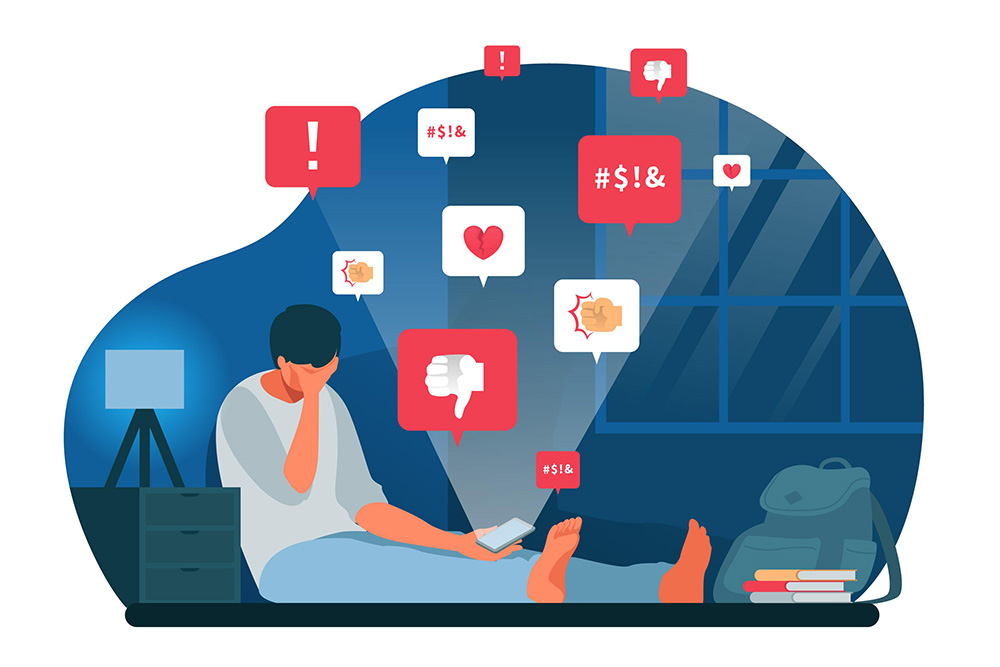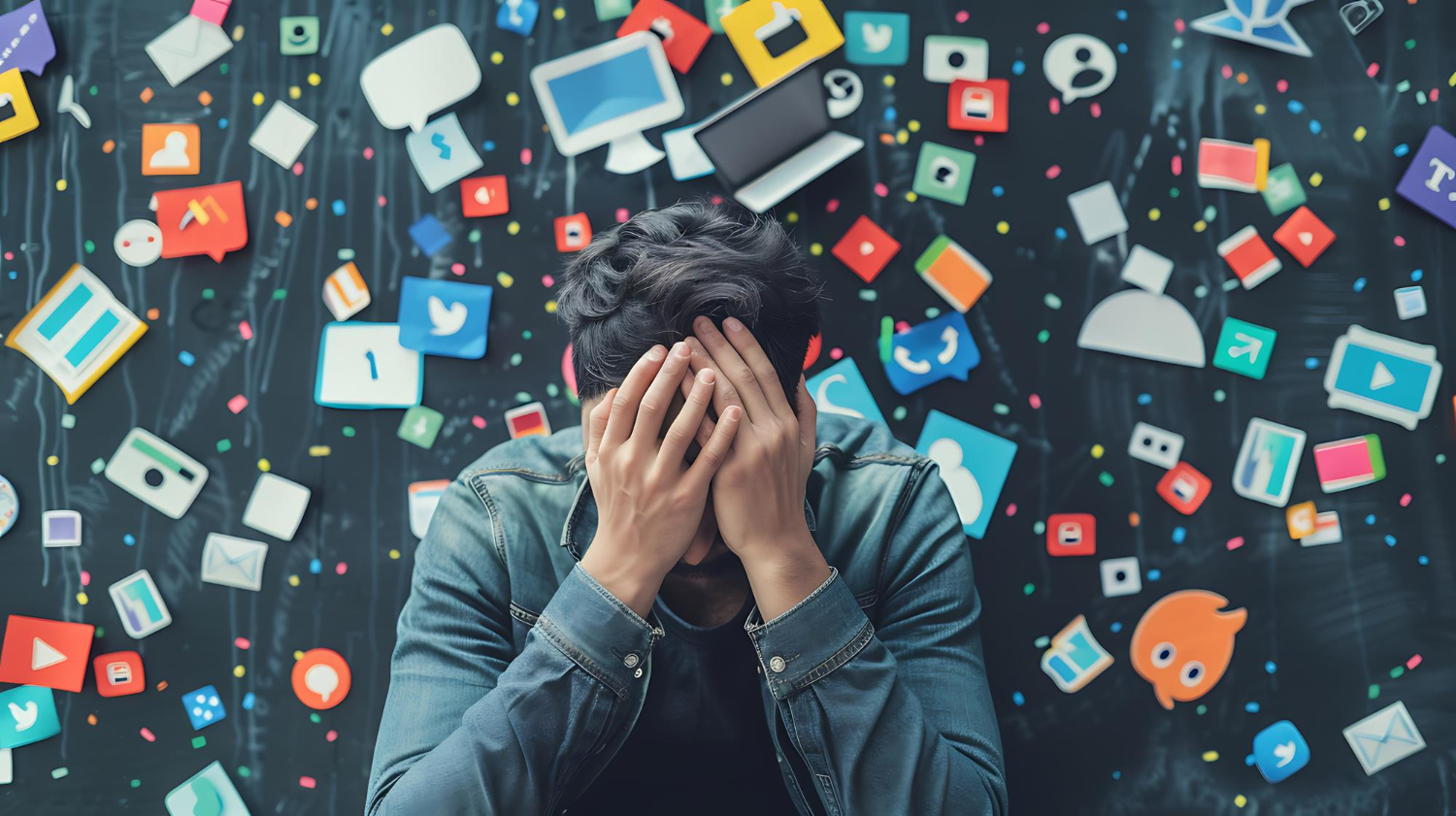Digital burnout in Romania: too much social media
Social media and digital burnout in Romania: when too much online becomes overwhelming in 2025
Introduction to digital exhaustion
Infinite scrolling on TikTok, dozens of notifications on Instagram, the pressure to respond instantly on WhatsApp, the fear of missing out (FOMO)… Sound familiar? In 2025, social media is an omnipresent component of our lives. However, excessive use can lead to an increasingly widespread phenomenon: digital burnout. This form of mental and emotional exhaustion, caused by prolonged exposure to technology, is affecting more and more Romanians.
What is digital burnout and how do you recognize it?
Digital burnout is not just tiredness, but a state of chronic exhaustion. Signs can vary, but the most common include:
- Persistent mental fatigue: Difficulty concentrating, feeling of "mental fog" and inability to enjoy offline activities.
- Anxiety and irritability: Increased nervousness, sensitivity to social comparisons, and feelings of inadequacy generated by lives filtered on social media.
- Decreased performance: Constant distraction, procrastination, and difficulty completing daily tasks.
- Cynicism and emotional detachment: Loss of interest in activities that previously brought pleasure and a feeling of inner emptiness.
- Sleep problems: Difficulty falling asleep, often due to using your phone before bed.
- Physical symptoms: Headaches, muscle tension or digestive problems.
How does social media contribute to this burnout?
Social media platforms are, by design, created to capture our attention for as long as possible.

- Addictive Design: Constant notifications and infinite scrolling trigger the release of dopamine in the brain, creating a reward cycle that encourages repetitive use.
- Social comparison pressure: Constant exposure to idealized versions of reality (exotic vacations, professional successes) can lead to envy and dissatisfaction. Young Romanians, in particular, may feel intense pressure to conform to unrealistic standards promoted by influencers.
- Fear of missing out (FOMO): The need to always be up to date generates anxiety and compulsive phone checking.
- Blurring boundaries: For many professionals in Romania, especially in marketing or creative fields, social media presence is part of the job. 24/7 work WhatsApp groups and the expectation of always being available contribute to burnout.
Strategies to prevent and combat digital burnout
Recognizing the signs is the first step. The next step is conscious action.
- Set time limits: Use your phone's features ("Digital Wellbeing" or "Screen Time") to monitor and limit the time spent on apps.
- Create periods of "digital detox": Set regular intervals (one evening a week, one weekend a month) when you completely disconnect. Avoid your phone at least an hour before bed.
- Turn off unnecessary notifications: Keep only truly essential alerts active to reduce the temptation to constantly check.
- Be selective about who you follow: Unfollow accounts that put you in a negative mood. Follow content that inspires, educates, or relaxes you.
- Invest in offline activities: Sports, walks in nature or quality time spent with friends (face to face) are essential.
- Seek professional help: If your symptoms are severe, don't hesitate to talk to a psychologist. Platforms like Psiho.ro can be a first step in finding a specialist.
Conclusion: Take control of your relationship with technology
Social media is a powerful tool, but it can be harmful if used excessively. Awareness of the risks and adopting digital self-care strategies are vital for our mental health. It's time to take control. For companies, this means creating a culture that respects free time, a principle also supported by IT and digitalization solution providers, such as Altanet Craiova, who understand the importance of a healthy balance in the digital age.
For more interesting information about social media, read our article – How social media algorithms work in 2025


Leave a reply